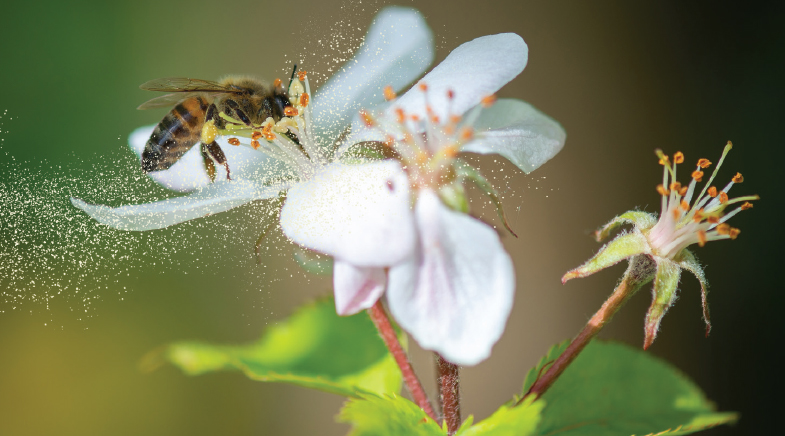A policy in need of a fix
-
- from Shaastra :: vol 02 issue 05 :: Sep - Oct 2023

Substance misuse is a deadly problem, but the remedy lies in decriminalisation and offering psychosocial support.
The title of the book is provocative, but most of what Anirudh Kala writes rings true. The exponential rise in addictive behaviours, particularly in the young and especially post-COVID-19, has set alarm bells ringing. There couldn't have been a better time to take stock of this complex phenomenon that impacts different layers of society.
Kala draws from his experience of working as a psychiatrist in Punjab, which has gone through severe socio-political upheavals in recent decades, profoundly affecting the mental health of the youth and driving them to substance misuse. Written with concern at times, and occasionally with wry humour, the book grips you even as it navigates through history, politics, statistics and science.
Kala establishes that narcotic substances have been used since the dawn of civilisation. There is evidence of opium addiction in the Mediterranean and West Asia 7,500 years ago. The brewing of beer started 7,000 years ago. In India, opium may have been brought in by Arab traders in the 7th century. However, cannabis has been mentioned in earlier medical texts, and is thought to be native to India or brought by Aryans in 200 BCE. That psychoactive substances were a part of medical treatment and rituals, including religious festivities, has been recorded in ancient texts and recent retrospective research.
Historically and at present, Punjab and the North-East of India have had the largest proportion of people using or abusing substances, notes Kala. But Punjab saw a surge in opioid addictions only after the Narcotic Drugs and Psychotropic Substances (NDPS) Act was promulgated in 1985.
A 'WAR' GONE AWRY
Ronald Reagan's 'War on Drugs' in the 1970s and early 80s became a worldwide slogan that led to draconian laws, which turned the casual, recreational drug user into a criminal overnight. In Punjab, natural opioids (opium and opium husk) and cannabis products were available freely before the NDPS Act, but not after. Instead, there was a sharp rise in synthetic opioids and prescription drugs, which were more addictive and harmful, and easily accessible to the youth.
Kala makes a case for how the rise in harmful substance use in Punjab was a combination of complex factors, including availability of highly addictive substances, harsh legislation and economic upheavals.

The mere availability of an addictive substance does not necessarily lead to wide-scale addiction. He argues that the two most addictive substances — alcohol and tobacco — have been legal in India and not led to any crisis. The 2019 National Survey on Extent and Pattern of Substance Use in India found that 14.6% of the population had used alcohol in the preceding year, while the prevalence of problem drinking was 5.2%. The corresponding figures for cannabis were 2.66% and 0.66%, and for opioids 2.06% and 0.70%. "(The) belief... that if societies could just stop the availability of drugs, all will be well" is erroneous.
Prohibition pushes a drug underground, and bootlegging makes it more powerful and dangerous.
SCIENCE OF ADDICTION
Kala draws a distinction between judicious use and addiction. While the former could be medicinal, recreational or ritualistic, addiction affects only a small minority of users. He points out that the current scientific view is that addiction is not "a bad habit" but is driven by a genetic predisposition, adverse life events, especially childhood trauma, and other complex socio-cultural factors. He enumerates a range of evidence that points towards a single pathway, called the Reward System, which is implicated in all drug addictions. Indeed, even in behavioural addictions, including of gadgets, gambling, shopping or sex, the same pathway is shown to be activated. Interestingly, what determines the course and outcome in an individual, besides competent evidence-based psychiatric and psychological treatments, is how the family, the community and the state respond to it. The more support the individual gets, the better the outcome.
Take Portugal. It was the first country to decriminalise drugs in 2001, when it had one of the highest rates of drug use and addiction. As a society, it became more inclusive and accepting towards drug users and channelled the resources used in the criminal justice system towards building awareness and a humane treatment of users. Portugal soon saw a dramatic decrease in problematic drug use.
Kala challenges the efficacy of the long-drawn 'War on Drugs', which has spent "trillions of dollars" and "resulted in the imprisonment of millions of people worldwide".
"Is it working?" he asks. It's a question we all need to ask ourselves.
Dr Amit Sen, a child and adolescent psychiatrist, is Co-founder of Children First, a mental health institute.
Have a
story idea?
Tell us.
Do you have a recent research paper or an idea for a science/technology-themed article that you'd like to tell us about?
GET IN TOUCH














